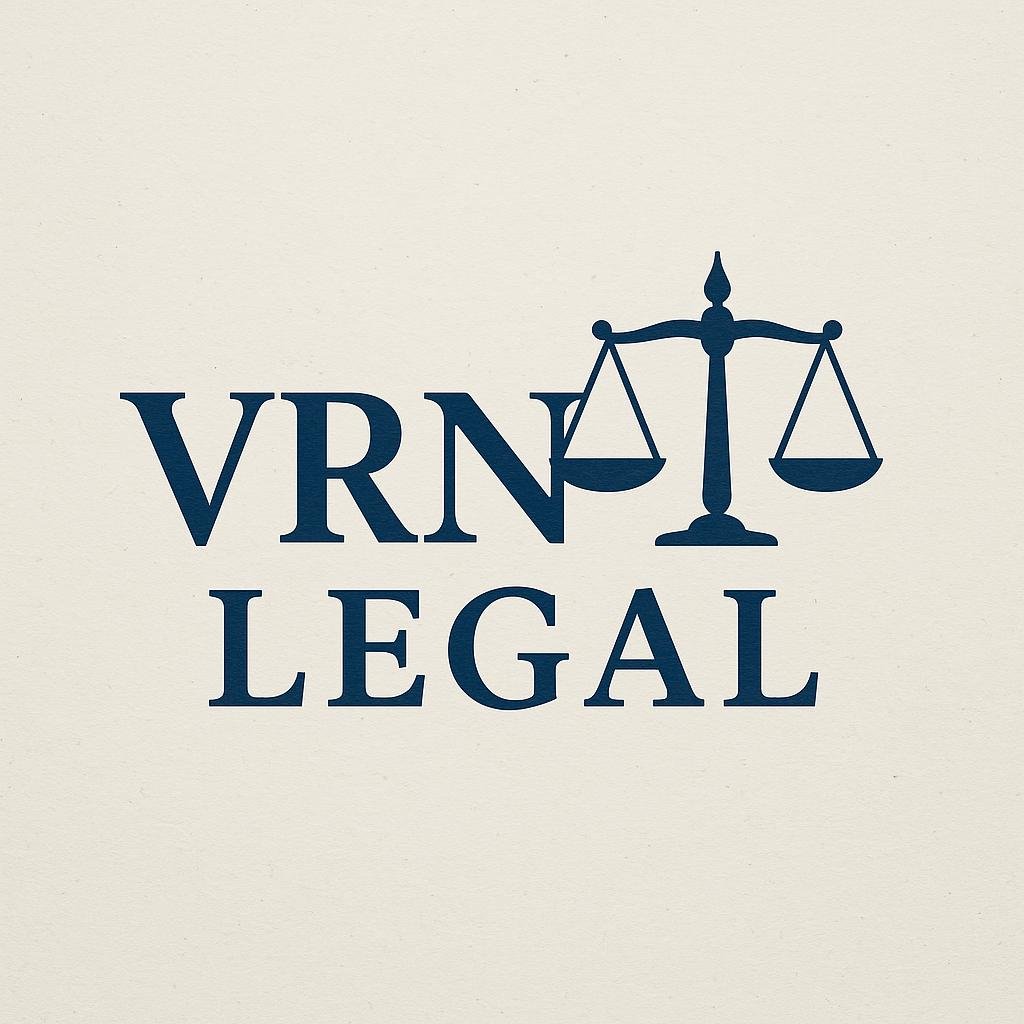In the hallowed halls of justice, seven beacons illuminate the path of advocacy. These “seven lamps” – honesty, courage, industry, wit, eloquence, judgment, and fellowship – guide advocates through the intricate maze of legal practice. But what makes these qualities so crucial in the pursuit of justice? 🧑⚖️💡
Imagine stepping into a courtroom, armed with knowledge but lacking the essential traits that set great advocates apart. The consequences could be dire: lost cases, tarnished reputations, and justice left unserved. The “Seven Lamps of Advocacy” offer a beacon of hope, illuminating the way for legal professionals to not only succeed but to truly excel in their noble profession. From building trust through unwavering honesty to navigating complex legal landscapes with sharp wit and eloquence, these lamps form the very foundation of effective advocacy.
Join us as we explore the Foundations of Advocacy, uncover the Essential Skills that every advocate must possess, delve into the realm of Professional Ethics and Conduct, and understand the profound Commitment to Justice that drives this honorable profession. Whether you’re a seasoned lawyer or an aspiring advocate, this journey through the seven lamps will ignite your passion for justice and equip you with the tools to shine brightly in the legal arena. 🔥⚖️
The Foundations of Advocacy

A. Honesty: Building trust and reputation
In the realm of advocacy, honesty stands as the cornerstone upon which all other qualities are built. It is not merely a desirable trait but a fundamental necessity for any advocate seeking to excel in their profession. Honesty in advocacy encompasses truthfulness in all dealings, whether with clients, opposing parties, or the court itself.
The importance of honesty in building trust and reputation cannot be overstated. As advocates, we are entrusted with the responsibility of representing our clients’ interests to the best of our abilities. This fiduciary duty demands unwavering integrity in all our actions. By consistently demonstrating honesty, we not only uphold the dignity of our noble profession but also cultivate a reputation that resonates within the legal community.
Consider the following aspects of honesty in advocacy:
- Client interactions: Always provide truthful advice and realistic expectations
- Court proceedings: Present facts accurately and refrain from misleading statements
- Legal documentation: Ensure all submitted documents are authentic and verified
- Professional relationships: Maintain transparency with colleagues and opposing counsel
The Supreme Court of India has emphasized the significance of honesty in advocacy, reinforcing the notion that our profession is a calling characterized by devotion and sincerity. By adhering to this principle, we not only serve our clients better but also contribute to the overall integrity of the legal system.
B. Courage: Confronting challenges confidently
Closely linked to honesty is the lamp of courage. In the face of adversity, an advocate must possess the fortitude to stand firm and confront challenges head-on. Courage in advocacy manifests in various forms:
- Defending unpopular causes
- Challenging unjust laws or precedents
- Standing up to powerful adversaries
- Admitting mistakes and taking responsibility
Courage empowers advocates to speak truth to power, even when it may be uncomfortable or potentially detrimental to their personal interests. It is this quality that enables us to tackle difficult cases effectively and without fear.
To illustrate the importance of courage in advocacy, consider the following table:
| Scenario | Courageous Action | Potential Outcome |
|---|---|---|
| Unjust law | Challenge constitutionality | Legal reform |
| Powerful opponent | Present strong arguments | Justice for the client |
| Ethical dilemma | Uphold professional standards | Maintain integrity |
| Unpopular cause | Provide zealous representation | Ensure fair trial |
By embodying courage, advocates can enhance their ability to think creatively under pressure, facilitating effective courtroom performance. This quality, when combined with a strong grasp of the law, enables us to navigate complex legal challenges with confidence and conviction.
C. Industry: Continuous legal education
The lamp of industry illuminates the path of continuous learning and improvement in the field of advocacy. In a rapidly evolving legal landscape, it is imperative for advocates to remain at the forefront of legal developments and expand their knowledge base consistently.
Industry in advocacy encompasses:
- Staying updated with new laws and amendments
- Studying landmark judgments and their implications
- Attending legal seminars and workshops
- Engaging in legal research and writing
The dynamic nature of law demands that advocates adapt to societal changes and legislative updates. By embodying the quality of industry, we ensure that our skills and knowledge remain sharp and relevant.
To effectively practice industry in advocacy, consider the following strategies:
- Set aside dedicated time for legal reading and research
- Join professional associations and participate in their activities
- Collaborate with colleagues to discuss complex legal issues
- Pursue specialized certifications or advanced degrees in relevant areas of law
By consistently updating our skills and knowledge, we not only enhance our competence but also demonstrate our commitment to providing the best possible representation for our clients.
The interplay of honesty, courage, and industry
These three lamps of advocacy – honesty, courage, and industry – form a powerful triad that strengthens an advocate’s professional foundation. Their interrelation can be understood as follows:
- Honesty provides the ethical backbone for courageous actions
- Courage enables advocates to pursue continuous learning and improvement
- Industry enhances an advocate’s ability to act honestly and courageously in complex situations
By nurturing these qualities, advocates can build a reputation for integrity, competence, and dedication that will serve them well throughout their careers.
As we conclude our exploration of these foundational lamps of advocacy, it’s important to recognize that they are but part of a larger set of essential qualities. While honesty, courage, and industry form the bedrock of effective advocacy, they are complemented by other crucial attributes that contribute to an advocate’s success.
With this in mind, next, we’ll delve into the “Essential Skills for Effective Advocacy,” where we’ll explore additional qualities such as wit, eloquence, and judgment. These skills build upon the foundation we’ve discussed, further enhancing an advocate’s ability to navigate the complexities of the legal profession and serve their clients with distinction.
Essential Skills for Effective Advocacy

Now that we have covered the foundations of advocacy, let’s delve into the essential skills that make an advocate truly effective. These skills build upon the foundational principles and are crucial for success in the legal profession.
A. Wit: Creative thinking under pressure
Wit plays a vital role in an advocate’s arsenal, serving as a powerful tool for navigating the complexities of legal proceedings. It encompasses more than just humor; it’s about quick thinking and the ability to connect ideas cleverly, especially in high-pressure situations.
Key aspects of wit in advocacy include:
- Stress alleviation: A well-timed witty remark can help lighten the mood in tense courtroom scenarios.
- Adaptability: Wit enables advocates to think on their feet and respond effectively to unexpected challenges.
- Creative problem-solving: By fostering innovative thinking, wit helps advocates find unique solutions to complex legal issues.
- Engagement: Witty presentations can captivate judges and juries, making arguments more memorable and impactful.
To cultivate wit, advocates should:
- Practice improvisational exercises
- Study rhetorical techniques
- Expose themselves to diverse perspectives and ideas
- Develop a keen sense of timing and appropriateness
Remember, while wit is valuable, it must be balanced with professionalism and respect for the gravity of legal proceedings.
B. Eloquence: Persuasive presentation of arguments
Eloquence is a cornerstone of effective advocacy, enabling lawyers to present their arguments with clarity, confidence, and persuasive power. It goes beyond mere verbal fluency; eloquence in advocacy requires a mastery of language that resonates with judges, juries, and clients alike.
Components of eloquence in legal advocacy:
| Component | Description | Importance |
|---|---|---|
| Clarity | Clear and concise communication | Ensures arguments are easily understood |
| Confidence | Self-assured delivery | Builds credibility and trust |
| Persuasiveness | Compelling presentation of facts and logic | Influences decision-makers |
| Adaptability | Tailoring language to the audience | Enhances relatability and impact |
To develop eloquence, advocates should focus on:
- Expanding vocabulary, especially legal terminology
- Studying effective public speaking techniques
- Practicing argument construction and delivery
- Analyzing successful advocates’ speaking styles
- Seeking feedback and continually refining their approach
Eloquence is not just about speaking well; it’s about effectively communicating complex legal concepts in a way that is accessible and convincing to all parties involved.
C. Judgement: Understanding cases from multiple perspectives
Judgement, often considered the most critical skill in advocacy, encompasses the ability to assess a case’s strengths and weaknesses, anticipate counterarguments, and guide clients with informed decisions. It requires a deep understanding of the case from multiple angles and the capacity to foresee potential challenges.
Key aspects of legal judgement include:
- Case analysis: Thoroughly examining all facets of a case to identify crucial elements
- Strategic planning: Developing effective legal strategies based on comprehensive assessment
- Risk evaluation: Assessing potential outcomes and advising clients accordingly
- Ethical consideration: Balancing legal obligations with moral responsibilities
To enhance judgement skills, advocates should:
- Continuously update their legal knowledge
- Study precedents and landmark cases
- Engage in mock trials and case simulations
- Seek mentorship from experienced practitioners
- Develop critical thinking and analytical skills
Effective judgement also involves:
- Considering societal implications of legal decisions
- Balancing client interests with broader justice concerns
- Adapting strategies as new information emerges
- Maintaining objectivity while advocating passionately
By honing these essential skills – wit, eloquence, and judgement – advocates can significantly enhance their effectiveness in the courtroom and beyond. These qualities work in tandem, enabling lawyers to think creatively under pressure, present arguments persuasively, and make sound decisions based on a comprehensive understanding of their cases.
As we move forward, it’s crucial to recognize that these skills do not exist in isolation. They are intricately connected to the broader framework of professional ethics and conduct, which we will explore in the next section. The ability to wield wit, eloquence, and judgement effectively is only truly valuable when grounded in a strong ethical foundation.
With this in mind, we’ll next examine how these essential skills intersect with the ethical responsibilities that form the backbone of the legal profession. Understanding this connection is vital for advocates who strive not just for success in individual cases, but for the broader goal of upholding justice and maintaining the integrity of the legal system.
Professional Ethics and Conduct

Now that we have covered the essential skills for effective advocacy, let’s delve into the crucial aspects of professional ethics and conduct that form the backbone of the legal profession.
A. Fellowship: Respect among legal professionals
Fellowship stands as one of the seven lamps of advocacy, illuminating the path of professional conduct for lawyers. This principle underscores the importance of maintaining respectful relationships among legal professionals, regardless of their opposing positions in the courtroom.
The concept of fellowship in the legal profession encompasses:
- Collegiality: Fostering a collaborative legal community
- Mutual respect: Recognizing the value of each professional’s role
- Ethical interactions: Upholding the dignity of the profession through conduct
- Professional growth: Supporting and learning from peers
Fellowship goes beyond mere cordiality; it’s about creating an environment where legal professionals can thrive collectively. The Supreme Court of India has emphasized that advocacy is a noble calling, characterized by devotion and sincerity. This nobility is reflected in the way advocates interact with one another, even when representing opposing interests.
Consider the following table illustrating the benefits of fellowship in the legal profession:
| Aspect of Fellowship | Benefits to Individuals | Benefits to the Profession |
|---|---|---|
| Collegiality | Enhanced networking | Improved justice delivery |
| Mutual respect | Reduced stress | Increased public trust |
| Ethical interactions | Personal growth | Maintained profession dignity |
| Professional growth | Skill development | Advancement of legal knowledge |
By embracing fellowship, advocates contribute to a positive legal ecosystem. This not only enhances their individual practices but also upholds the integrity of the justice system as a whole.
B. Tact: Navigating courtroom dynamics
Tact, introduced as an additional lamp by Justice K. V. Krishnaswamy Aiyer, is a crucial skill for navigating the complex dynamics of the courtroom and legal interactions. It complements the other lamps of advocacy by focusing on the nuanced aspects of interpersonal communication and behavior.
Tact in advocacy involves:
- Skillful handling of delicate situations
- Avoiding offense while maintaining one’s position
- Reading and responding to non-verbal cues
- Adapting communication style to different audiences
The importance of tact cannot be overstated in the legal profession. It allows advocates to:
- Present arguments persuasively without antagonizing the opposition
- Build rapport with judges, clients, and colleagues
- Navigate sensitive topics with discretion
- De-escalate tense situations in and out of the courtroom
Tact is closely related to eloquence, another lamp of advocacy. While eloquence focuses on the art of persuasive communication, tact ensures that this communication is delivered in a manner that is appropriate and effective given the specific context and audience.
Here’s how tact intersects with other lamps of advocacy:
| Lamp of Advocacy | Intersection with Tact |
|---|---|
| Honesty | Truthful yet diplomatic communication |
| Courage | Assertive but respectful advocacy |
| Wit | Clever responses without offense |
| Industry | Diligent preparation for tactful presentation |
| Eloquence | Persuasive speech tailored to the audience |
| Judgment | Wise decisions on when and how to speak |
| Fellowship | Fostering positive relationships through tactful interactions |
The application of tact extends beyond the courtroom. It’s essential in client consultations, negotiations, and even in day-to-day interactions with colleagues. By mastering tact, advocates can enhance their professional relationships and effectiveness in various legal settings.
Professional ethics and conduct in advocacy are not merely abstract concepts but practical guidelines that shape the very fabric of the legal profession. The principles of fellowship and tact work in tandem with the other lamps of advocacy to create a legal environment that is both effective and ethical.
Fellowship encourages a sense of community among legal professionals, fostering an atmosphere of mutual respect and collaboration. This collegiality is crucial for maintaining the dignity of the profession and ensuring that justice is served through honorable means. As advocates engage in their duties, the spirit of fellowship reminds them that they are part of a larger legal fraternity working towards the common goal of upholding justice.
Tact, on the other hand, provides the finesse necessary to navigate the often challenging and sensitive situations that arise in legal practice. It allows advocates to maintain their integrity and effectiveness while avoiding unnecessary conflicts or misunderstandings. The tactful advocate can present their case forcefully yet respectfully, maintaining professional relationships even in adversarial settings.
Together, fellowship and tact contribute significantly to the ethical framework that governs the legal profession. They help create an environment where advocates can pursue justice vigorously while maintaining the highest standards of professional conduct. This balance is essential for preserving public trust in the legal system and ensuring its continued efficacy.
As we transition to the next section on “The Advocate’s Commitment to Justice,” it’s important to recognize how the principles of professional ethics and conduct lay the groundwork for this commitment. The ethical advocate, guided by the lamps of fellowship and tact, is better equipped to fulfill their role as a guardian of justice. Their commitment is not just to winning cases but to upholding the principles of fairness, integrity, and respect for the law that are fundamental to the justice system.
In the upcoming section, we will explore how these ethical foundations translate into a deeper commitment to justice, examining the advocate’s role in ensuring that the legal system serves its highest purpose. This commitment builds upon the professional ethics and conduct we’ve discussed, demonstrating how these principles are not just theoretical but are actively applied in the pursuit of justice.
The Advocate’s Commitment to Justice

Now that we have covered the importance of professional ethics and conduct in advocacy, we’ll delve into the advocate’s commitment to justice, which is the cornerstone of the legal profession. This commitment goes beyond mere professional obligations and touches upon the very essence of what it means to be an advocate.
A. Prioritizing justice over personal gain
In the realm of advocacy, the pursuit of justice should always take precedence over personal interests or financial gains. This principle is deeply rooted in the “Seven Lamps of Advocacy,” which serve as guiding lights for legal professionals:
- Honesty
- Courage
- Wit
- Industry
- Eloquence
- Legal judgment
- Professional fellowship
These qualities collectively form the foundation of an advocate’s commitment to justice. Let’s explore how they contribute to prioritizing justice:
Honesty as the bedrock of justice
Honesty is paramount in the legal profession. An advocate’s fiduciary duty to act in their clients’ best interests necessitates unwavering integrity in all dealings. This commitment to truth extends beyond client interactions to include:
- Truthfulness with opposing parties
- Adherence to the letter and spirit of the law
- Transparent communication with the court
By prioritizing honesty, advocates build trust within the legal community and ensure that justice is served through truthful representation.
Courage in the face of challenges
Courage is intrinsically linked to honesty and is crucial for advocates who must stand firm in their pursuit of justice. This quality enables lawyers to:
- Take on difficult cases without fear
- Confront challenging situations in court confidently
- Advocate for their clients even when facing powerful opposition
The bravery to stand up for what is right, even in the face of adversity, is a hallmark of an advocate truly committed to justice.
Wit and industry: Tools for justice
Wit and industry work hand in hand to equip advocates with the necessary skills to serve justice effectively:
| Quality | Role in Prioritizing Justice |
|---|---|
| Wit | Enables quick thinking and clever connections, crucial for adaptability in the courtroom |
| Industry | Drives continuous learning and skill updating to stay competent in an evolving legal landscape |
These qualities ensure that advocates are well-prepared and agile in their pursuit of justice, capable of navigating complex legal scenarios with acumen.
Eloquence in the service of justice
The power of persuasive communication cannot be overstated in the field of advocacy. Eloquence is a vital tool for:
- Presenting arguments clearly and convincingly
- Resonating with judges and juries
- Articulating the merits of a case effectively
By honing their eloquence, advocates can ensure that justice is not just served, but also understood and appreciated by all parties involved.
Legal judgment: The compass of justice
Perhaps the most critical skill in an advocate’s arsenal is legal judgment. This quality encompasses:
- Assessing a case’s strengths and weaknesses
- Anticipating counterarguments
- Guiding clients with informed decisions
A well-developed legal judgment allows advocates to navigate the complex terrain of the law, always keeping the ultimate goal of justice in sight.
Professional fellowship in pursuit of collective justice
The concept of professional fellowship underscores the importance of maintaining respectful relationships among legal professionals, regardless of opposing positions. This quality:
- Fosters a collaborative legal community
- Encourages the exchange of ideas and knowledge
- Promotes a unified approach to upholding justice
By prioritizing professional fellowship, advocates contribute to a legal ecosystem where the collective pursuit of justice takes precedence over individual victories.
B. Upholding professional integrity
Professional integrity is the backbone of an advocate’s commitment to justice. It encompasses a range of behaviors and attitudes that ensure the highest standards of ethical conduct in the legal profession.
Maintaining ethical standards
Advocates must adhere to a strict code of ethics that governs their professional conduct. This includes:
- Avoiding conflicts of interest
- Maintaining client confidentiality
- Providing competent representation
By consistently upholding these ethical standards, advocates demonstrate their commitment to justice and the integrity of the legal system.
Continuous professional development
The dynamic nature of law requires advocates to engage in ongoing learning and skill enhancement. This commitment to professional development involves:
- Staying updated on legal precedents and new legislation
- Attending continuing legal education programs
- Engaging in peer-to-peer learning and mentorship
Through continuous improvement, advocates ensure they are always equipped to serve justice effectively.
Balancing client advocacy with legal ethics
One of the most challenging aspects of upholding professional integrity is striking the right balance between zealous client advocacy and ethical obligations. Advocates must:
- Provide robust representation for their clients
- Ensure all actions are within the bounds of legal and ethical standards
- Avoid tactics that may compromise the integrity of the legal process
This delicate balance is crucial for maintaining the trust of clients, peers, and the court while pursuing justice.
Transparency and accountability
Upholding professional integrity requires a commitment to transparency and accountability in all professional dealings. This includes:
- Clear communication with clients about case progress and potential outcomes
- Honest billing practices
- Willingness to admit and rectify mistakes
By embracing transparency and accountability, advocates reinforce their commitment to justice and ethical practice.
Cultivating a reputation for integrity
A reputation for integrity is an advocate’s most valuable asset. It is built through:
- Consistent ethical behavior
- Reliable and trustworthy conduct
- Demonstrated commitment to justice over personal gain
This reputation not only benefits the individual advocate but also enhances the public’s trust in the legal system as a whole.
In conclusion, the advocate’s commitment to justice is a multifaceted responsibility that requires a delicate balance of skills, ethics, and personal qualities. By prioritizing justice over personal gain and upholding professional integrity, advocates fulfill their crucial role in the justice system. This commitment not only serves their clients but also contributes to the broader goal of maintaining a fair and just society governed by the rule of law.

The seven lamps of advocacy—honesty, courage, industry, wit, eloquence, judgment, and fellowship—serve as guiding principles for legal professionals. These qualities, along with the additional lamp of tact, form the bedrock of effective advocacy. By embodying these traits, advocates can navigate the complexities of the legal system, maintain ethical standards, and fulfill their commitment to justice.
Aspiring and practicing advocates alike should strive to cultivate these essential qualities throughout their careers. By doing so, they not only enhance their professional effectiveness but also contribute to the integrity of the legal profession as a whole. Remember, advocacy is not merely about winning cases; it’s about upholding justice and serving society. As you embark on or continue your journey in advocacy, let these lamps illuminate your path towards becoming a truly exemplary legal professional.
